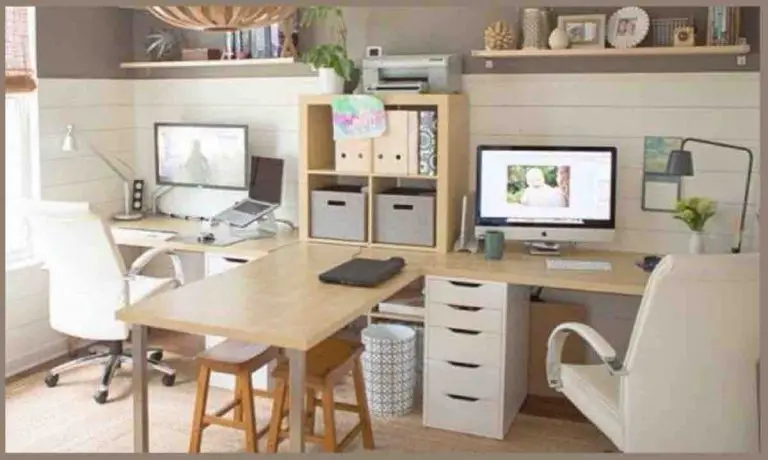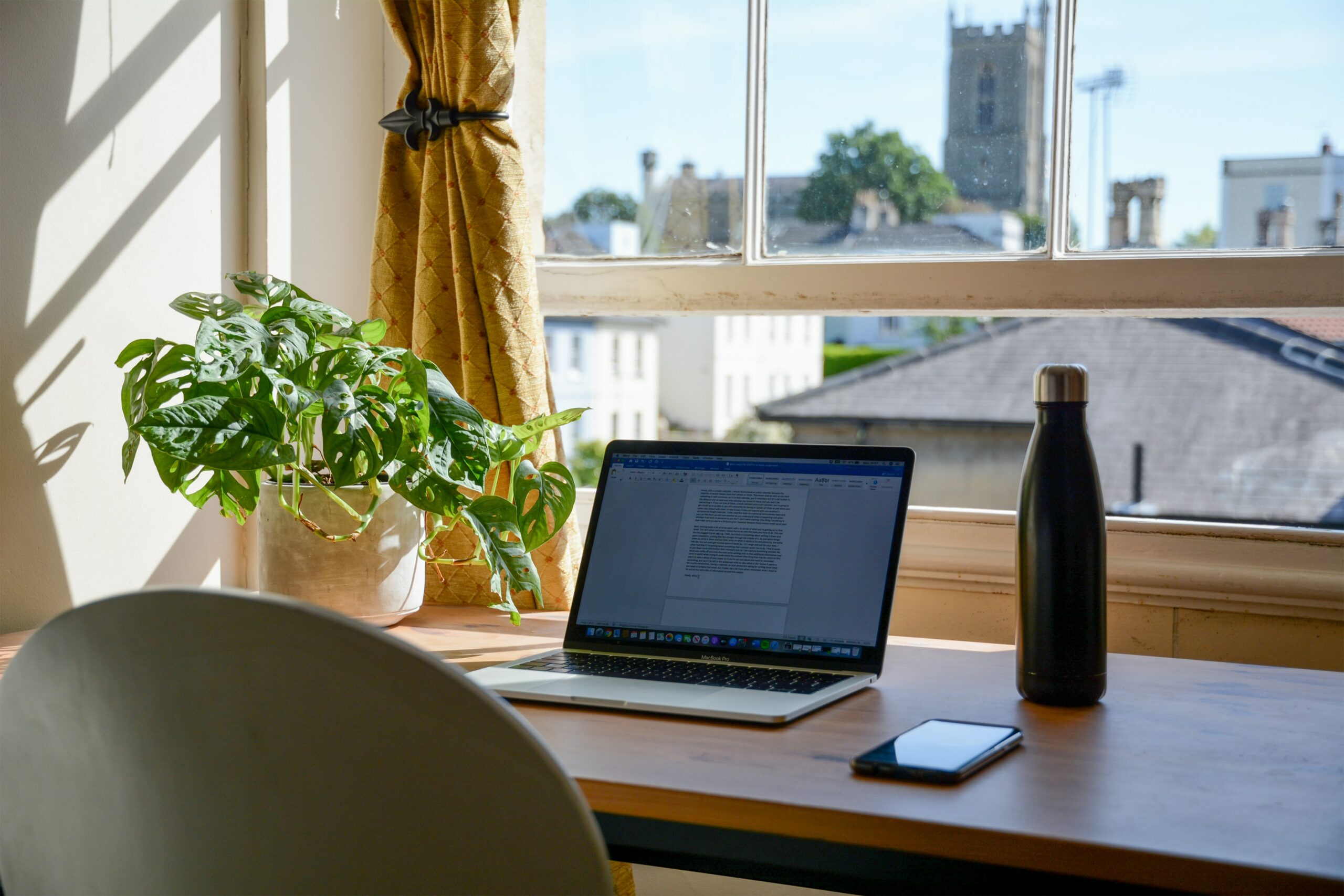Many people now work from home. There’s a certain amount of freedom that comes with it for small business owners, freelancers, and those who are working from home.The right technology allows you to do everything in an office building these days. When it comes to working from home, what kind of equipment helps to make you feel more comfortable? If you want to be as productive as possible, setting up a dedicated home office space with the most important equipment is an absolute requirement. It can help you achieve a work-life balance and increase your productivity at the same time!
Let’s read about our recommendations of home office essentials to make your workstation more efficient and effective…
Home Office Hardware Essentials
Hardware essentials are your office’s nuts and bolts. For instance, computers, lighting, and ergonomic desk and chair setup. Not to forget, a router that can be optimized go for a router with a VPN optimization option, so that you can easily set up some of your software essentials on it.
If you’re not sure where to start, here are a few suggestions to get you started.

1. The Computer
Computer selection is heavily influenced by the type of work you do. Laptops are a good choice if you work from home. In the end, the laptop you choose will be determined by a variety of factors such as battery life as well as feature set and power consumption.
While laptops are becoming increasingly powerful, some tasks still require the extra power of a desktop. Choose the best powerful desktop that meets the requirements of new technology and generation.
2. The Monitor
Certainly, the monitor screen is a crucial component of any desktop computer. Adding a 2nd monitor for laptop users can significantly minimize visual fatigue. Most of the monitors are between 19 and 34 inches in length. In terms of display size and available space, most users should get a monitor between 18 and 24 inches.
This is especially true if you’re a multi-tasker who wants to have many windows open.
When choosing a monitor, you should consider the following:
- 1080p (or 4K if you have the money) and 16:9 aspect ratio, the same as HDTV.
- Make sure to connect to the monitor with HDMI and have proper inputs.
3. All-In-One (AIO) Printer
In a home office, functionality and practicality must be considered. Saving space is part of being practical. As a result, an all-in-one printer makes perfect sense. One machine for printing, copying, and scanning, plus the option to add faxing if needed.
On the market, there are a variety of AIO printers, each with its own set of features and functionalities.
- How much text do you print compared to how much graphics do you print?
- Will you only print in black and white or will you also print in color?
- How many pages will you print and copy?
- How important is it that you be able to email documents directly from the scanner?
4. Internet Provider & Router
You need a fast and reliable network to be able to work effectively from home. Your network must be connected to the Internet via a strong connection.
Here are a few things to consider when choosing a router and an internet service provider:
- A router that is easy to set up, use, and maintenance will save your time and money. You are going to have easy-to-use features that you can access from a computer or mobile device.
- Secure your network with a virtual private network (VPN) for business that has security features, support, connectivity options, and scalability.
- Don’t limit yourself to downloading. When it comes to video conferencing, which is a must for many home office workers, upload speeds are crucial because they impact the quality and video signals and speed of audio being sent out from your home-based office.
- There is a requirement for a reliable wireless router. However, in your home office, it still requires something that can manage multiple devices accessing the network at the same time without having to worry about huge amounts of network traffic.
Read: Blue light from your computer or phone could damage your eyes
Home Office Software Essentials
Your business must have the necessary programs, applications, and operating systems to function properly. In addition to industry-specific applications, there are a few that every home office should have installed.
1. Anti-virus Software
When it comes to malware and other attacks, it doesn’t matter whether you have 1,000 employees or just one.
Anti-virus software is essential for keeping your computer safe. Malware such as viruses or spyware infecting your computer, can corrupt or delete your files, steal data from you, or give others access to your computer and business information.
When selecting an antivirus program, there are several factors to consider:
- Price is often a problem for a home-based office, but free antivirus software is less effective than paid software.
- Performance vs. speed: don’t sacrifice performance for speed.
- Ensure all of your devices are compatible with the software.
- Customers should be informed about critical safety issues by the provider and offer excellent customer support and service.
- A product that uses Machine Learning (ML) and cloud-based systems to protect your networks is a good place to start. With cloud-based management, establishing up and managing update servers is a walk in the park.
- If you’re setting up a home office, look for an easy-to-use system that you can easily set up yourself.
Even though there are many products on the market, our experience leads us to recommend the best antivirus software for small businesses. You can use it on both Mac and PC to protect yourself from viruses and other online threats such as ransomware.
In addition, Webroot offers a range of price points and platforms with features ranging from home to enterprise-level—so there is a cost-effective solution to fit your needs and your wallet.
Read: The risks of sitting for too long in front of a computer
2. A Virtual Private Network (VPN)
Your network and the information that travels on it should also be kept private since you enjoy working from the comfort of your own home. Fortunately, there’s a VPN for that.
You can connect to other networks—your internet destinations—securely using a VPN. You are anonymous and your browsing activities are hidden from prying eyes because your data is encrypted before it enters the tunnel.
Remote work and access to information on other networks require a VPN. Working from a coffee shop, airport, or other public space with unsecured and unencrypted Wi-Fi is especially important.
3. Collaboration Software
When you work from home, you’re rarely working by yourself. Everybody has to work in a team environment. Other team members, business partners, or clients may be required to work together to achieve the best possible outcome.
Using fine collaboration tools has many advantages. By ensuring that team members have immediate access to the information and documents they need, at any given time, enhances workflow and project management.
Depending on your industry and goals, you’ll want to choose a collaboration software that’s right for you. A variety of options will be available depending on the platform being used. Which options are most important to you must be determined.
In selecting your collaboration software, you should consider the following:
- Do you want to improve communication within your team?
- Is your company in need of video chat capabilities?
- Workflows should be standardized to ensure efficiency.
- You would greatly benefit from being able to generate reports on work done.
Other Home Office Essentials
You’ll also need other physical components for your home office in addition to the above tech necessities. Due to the fact that you’ll be spending a lot of time there, you’ll want to make sure it’s a good fit.
1. Your Desk
So you want to love it, but at the same time, you need your desk to be functional. You should consider the following when choosing a desk.
- What kind of computer do you use?
- For how large a screen must the enclosure be?
- What other electronic devices must it accommodate?
- It’ll fit in the space, will it not?
Small spaces can be better utilized by using corner desks. Floating desks that attach to the wall can be an even better solution if you’re short on space. You can add bookshelves and file cabinets to your desks or attach them to make the most of the available space.
Home office budgets tend to be tight, but you don’t want to forsake quality to save a few bucks. Your desk is going to be well-used so you don’t want it falling apart in a couple of years.
2. Your Chair
Considering how much time you’ll be spending in a chair, choosing the right one is essential. For your comfort and health, it is the most important office tool.
It’s important to look for a chair that can be adjusted in several key areas.
- Flexible lumbar support that adjusts to fit your individual spine. This has a significant impact on reducing lower back stress.
- Both the height and width of the armrests should be adjustable. To reduce shoulder and neck strain, bring arms close to sides and adjust the height to match what your desk is set at.
- It’s important to have the option of being able to adjust the height of the chair so that your feet rest flat on the floor. This allows you to align your body properly, which reduces stress and fatigue even more.
When you sit for long periods, you can become fatigued and uncomfortable.
Read: How to arrange a healthy ambiance in the office
3. Lighting
An effective home office requires the use of proper lighting. Your energy levels will drop, you’ll get tired, you’ll get headaches and you’ll be unable to work efficiently.
If your space lacks natural light, the importance of artificial lighting increases. A workspace is not properly illuminated by ambient lighting such as overhead or recessed lights in the room where you are working.
When it comes to lighting your home office, consider the following:
- Wherever possible, take advantage of natural light. Much less strain on the eyes. If at all possible, place your desk right next to the window.
- Indirect lighting is ideal. Avoid working in direct sunlight. As an alternative, you should look for ways of diffusing the ambient light that is already available. As well as using lampshades to soften harsh light, an upward-facing floor lamp with a bright beam bounces light off the walls and ceilings.
- Adapt the lighting to the task. As an example, for computer work and other tasks that require intense concentration, choose a light source that is well-defined and dedicated to what you’re doing. With a desk lamp that can be adjusted or articulated, you can direct the light where you want it.
- Be aware of where you are and where the light is coming from when you are taking photos. Light from behind is almost certain to cause glare on your monitor, so be prepared for it! Keep an eye out for unintended shadows from task lighting lamps that have been installed.
As a result, it is worth the effort to set up the lighting properly.
Set Yourself Up For Success
Being able to work from home can be a real treat. It’s not uncommon to be able to set your own schedule and find little slivers of extra time to really enjoy life outside the workplace. However, if you want to get the most out of your home office, make sure it’s set up properly. There are several ways to set up your home office for maximum efficiency, comfortability, and security.
Photo by Mikey Harris on Unsplash




